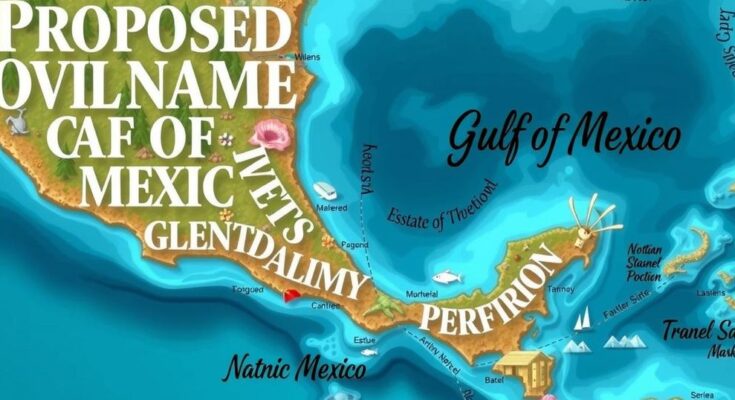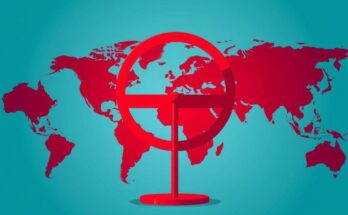Donald Trump’s recent press conference unveiled plans to change the Gulf of Mexico’s name to the ‘Gulf of America’ and hints at using military force to control the Panama Canal and Greenland. He criticized Joe Biden’s administration while voicing strong opinions on energy policies and foreign relations.
In a recent press conference at Mar-a-Lago, President-elect Donald Trump expressed his controversial proposals regarding geopolitical matters and domestic policy. He announced plans to rename the Gulf of Mexico to the ‘Gulf of America,’ claiming that it reflects a positive vision for the future. Additionally, Trump did not dismiss the possibility of using military action to assert control over the Panama Canal and Greenland. He criticized the previous administration’s negotiations surrounding these territories, arguing that they have been mismanaged, particularly emphasizing the importance of the Panama Canal being operated by foreign interests, notably China. Trump’s remarks were broad-ranging, tackling issues from energy policy to foreign relations, while he also voiced strong contempt for President Joe Biden’s climate initiatives.
In context, Trump has continually sought to reshape U.S. foreign and domestic policy with assertive rhetoric, particularly regarding regions he believes are vital to America’s national security. His focus on reclaiming the Panama Canal and Greenland resonates with a larger narrative of American restoration that he aims to cultivate. Furthermore, Trump’s critiques of energy policies reflect his broader vision of prioritizing traditional energy sources over renewable alternatives, which he believes threaten job security and economic stability.
Trump remarked, “We are going to be changing — the opposite of Biden closing everything up and getting rid of 50 to 60 trillion worth of assets — we’ll be changing the name of the Gulf of Mexico to the Gulf of America, which has a beautiful ring.” – Source
In conclusion, Trump’s statements reveal a bold and nationalistic agenda as he anticipates returning to office. His proposals for the Gulf’s renaming and his assertions regarding the Panama Canal and Greenland underline a desire to reassert U.S. influence on the global stage. These remarks not only reflect his administration’s anticipated policy direction but also ignite significant discussions about America’s role in international affairs and domestic resource management.
The Gulf of Mexico is a crucial body of water bordered by the United States, Mexico, and Cuba, serving as a vital route for maritime trade and economic activities. The Panama Canal, connecting the Atlantic and Pacific Oceans, has historically been of immense strategic importance for global shipping. Control over these areas has often triggered discussions about national security, resource management, and American foreign policy. Trump’s approach in emphasizing these territories stems from a desire to bolster America’s geopolitical standing and protect its economic interests, particularly against perceived foreign dominance in these critical regions.
Trump’s recent proposals encapsulate his administration’s strategic priorities, aiming to enhance national security while reshaping America’s geopolitical narrative. His intentions to rename the Gulf of Mexico and assert control over key territories signal a bold front that seeks to re-establish U.S. dominance in international affairs, countering foreign influence, especially from nations like China. These plans, intertwined with his criticisms of the current administration’s policies, set the stage for a contentious political landscape ahead.
Original Source: www.dailymail.co.uk




